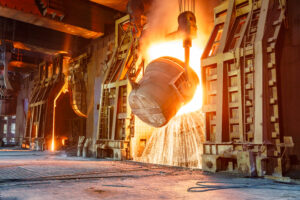Smart motorway rollout suspended amid safety concerns

The rollout of smart motorways has been suspended by the government until at least 2025 in response to safety concerns from MPs and motoring groups.
Schemes to convert stretches of the M3, M25, M62 and M40 will be put on ice until five years’ worth of safety data from the controversial roads are available, ministers said.
The government has promised a £900m package of additional safety measures on existing smart motorways in the meantime, including building more emergency refuge areas for vehicles in difficulty.
Smart motorways, which were introduced to increase road capacity and manage traffic by converting the hard shoulder to a live running lane, have been heavily criticised by safety campaigners – particularly relatives of people who have died in crashes after being left unable to find safe refuge when their vehicles broke down.
The government’s change of tack comes in response to a report by the cross-party transport select committee demanding a halt to the programme and a number of safety enhancements.
While the Department for Transport said that available data shows that smart motorways are the safest roads in the UK in terms of fatalities, it has agreed to have the technology independently evaluated by the regulator, the Office of Rail and Road (ORR), and to suspend the new schemes pending the full five years’ worth of safety data across the so-called “all lane running” motorways converted over the past decade.
The first smart motorways were either known as “controlled”, with a permanent hard shoulder as well as the electronic signage that imposes temporary, changeable speed limits, or “dynamic”, where the hard shoulder is used at peak times.
In a review of smart motorways commissioned by transport secretary, Grant Shapps, in March 2020, the government said dynamic smart motorways were confusing and should be phased out in favour of all-lane running, removing the hard shoulder permanently.
However, MPs on the transport committee said that the decision was premature and based on insufficient evidence.
The government says it will also pause the conversion of seven dynamic smart motorways to all-lane running while it assesses the data, before making a decision on next steps – but made clear, for now, that it did not believe that safety would be improved by reinstating the hard shoulder on motorways, as called for by many campaigners.
In its formal response to the committee’s report, the DfT noted the conclusion of MPs that evidence suggested reducing motorway capacity “could put more drivers and passengers at risk of death or serious injury if they were to divert on to less safe local roads, and that hard shoulders do not provide a safe place to stop”.
The government said it would now spend another £390m on installing more than 150 additional emergency refuge areas on existing smart motorways, about 50% more than at present, by 2025, on top of the £500m spend on retrofitting more stopped vehicle detection technology promised after Shapps’ 2020 stocktake.
Shapps said he had tried to “raise the bar” on safety, adding: “While our initial data shows that smart motorways are among the safest roads in the UK, it’s crucial that we go further to ensure people feel safer using them.
“Pausing schemes yet to start construction and making multimillion-pound improvements to existing schemes will give drivers confidence and provide the data we need to inform our next steps.”
Smart motorways already under construction will, however, be completed, the DfT said. That includes stretches of the M1, M4 and M6 due to be finished in 2022 or 2023. The DfT said failing to complete them would cause “significant disruption” for drivers.
The chief executive of National Highways, Nick Harris, said existing motorways would be made safer “and we will step up our advice to drivers so they have all the information they need”.
Motoring organisations and road safety campaigners welcomed the news of the pause. Meera Naran, whose eight-year-old son, Dev, died in a crash on the M6 in 2018, said it was “a positive opportunity to assess the future of our motorway network”.
The RAC said it was a “watershed decision [and] an unqualified victory for drivers” while the AA said it had met a key demand, that emergency refuge areas should be no more than three-quarters of a mile apart.
Huw Merriman MP, chair of the transport committee, credited ministers for revisiting the issue so soon and accepting the safety recommendations. He said: “It was clear that the public needs more reassurance that these motorways are safe to use.”
However, former roads minister Mike Penning MP, who signed off several smart motorway schemes but has since spoken out against them, said he remained deeply concerned. “Either we are happy that all-lane running is safe or we’re not,” he said. “If there is any reasonable doubt, which there clearly is … then we should stop using them.”




